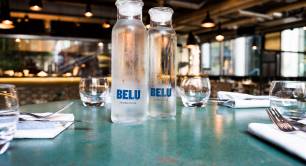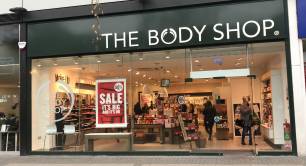Short n Sweet: 12 December 2019 - Businesses pledge climate targets
Bite-sized stories this week: Businesses pledge big at climate talks, UK construction firm Wates hits £20m social spending target, a new law in Cyprus, grants windfall for Irish projects and a market first in recycled materials for water company Belu.
UN climate talks: Businesses make big promises on emissions targets
More than 500 B Corps worldwide (of the 3,000 total) yesterday committed to achieving net zero greenhouse gas emissions by the year 2030 – 20 years ahead of the 2050 targets set in the Paris Agreement. The announcement was made at this week's COP25 UN Climate Change Conference in Madrid; companies signing up to the pledge include B Corp newcomers The Body Shop and The Guardian.
B Lab UK, the charity that supports the B Corp movement in Britain, has also recently launched the second edition of its guide on how to declare a climate emergency.
Another group of 177 firms – with a total 5.8m employees and a combined market capitalisation of over US$2.8trn – pledged to set climate targets that align with limiting global temperature rise to 1.5°C above pre-industrial levels, and to reaching net-zero emissions by 2050. These companies, who have signed up to the “Business Ambition for 1.5°C — Our Only Future” campaign, currently represent annual direct emissions equivalent to the annual total CO2 emissions of France.
Got news of your own to share? Let us know each week by Wednesday, at midday GMT: news@pioneerspost.com
Wates meets target to spend £20m through social enterprises
The UK construction and property company Wates has met its target of spending £20m through social enterprises in its supply chain, a goal set four years ago.
Wates – which recorded recorded a £1.6bn turnover in 2018 and employs almost 4,000 people – was a founder member of the Buy Social Corporate Challenge, which was launched in 2016 to encourage large firms to spend a combined £1bn with social enterprises by 2020.
Wates achieved its goal by committing every project it managed to trading with at least one social enterprise, according to the company website, with each business unit held to annual spend targets. It had also established an internal directory – managed by Social Enterprise UK, which created the Corporate Challenge campaign – of relevant local social enterprise suppliers.
Su Pickerill, Wates Group community investment manager, said: “For every pound we spend with a social enterprise we generate around £1.77 of social impact – through delivering additional benefits to society such as access to employment, or training, and we can be confident that we are leaving a positive legacy for the communities we work in.”
Cyprus government catches up with recognition and support of social enterprises
A bill promoting social enterprises in Cyprus will be approved in parliament early next year, after a seven-year delay, according to Cyprus Mail.
The Director of Planning at GD EPSA, Georgia Solomonidou-Christofidou, told reporters that the bill would allow the registration and certification of social enterprises by the end of 2020. It would also enable them to apply for funding of up to €20,000, with bigger pots of finance expected to be available from the following year.
Cyprus, which has a population of around 1.2 million, has just 150 businesses listed as social enterprises, according to the news website. Social enterprise was introduced in the public sphere in late 2008 and first appeared on the government’s policy agenda in 2013, according to a 2014 report for the European Commission.
Dormant accounts give €1m cash boost to Irish social enterprises
124 social enterprise projects were announced as grantees of Ireland’s new Small Capital Grants Scheme, receiving a share of a total of €1m in funding.
Grants come from a Dormant Accounts Fund, and range from just under €2,000 to €15,000. They will fund things like new kitchen equipment, computers, training material, and minor refurbishments.
Ireland’s minister for rural and community development Michael Ring announced the successful grantees on Monday, saying the scheme was “heavily oversubscribed” but that he would “review the possibility of making further allocations in 2020”.
The Small Capital Grants Scheme was announced in October, and follows the publication of Ireland’s first National Social Enterprise Policy earlier this year.
Belu achieves market first in use of recycled material
Belu, which donates 100% of its profits to international charity WaterAid, has announced it will become the first water company in the UK to make every one of its plastic bottles from 100% recycled plastic bottles. These generate 75% less carbon emissions than aluminium cans, according to the social enterprise, and are easily recycled themselves.
CEO Karen Lynch said that while some of the UK’s bigger water companies had trialled individual products made from 100% recycled plastic, none had committed to rolling this out across their entire business.
Belu encourages consumers to choose tap or filtered water, but says that those wanting bottled water can still opt for products with the lowest carbon footprint. “Our message is to first use less, but when you buy bottles, buy better,” said Lynch.
As well as cans, Belu looked into cartons but found that special processes are often needed to recycle them; only 37% of UK cartons are actually recycled. The company believes that more use of recycled plastic bottles will create more demand and value for them and help to fuel investment for better recycling infrastructure.
Last week Belu took home the Social Enterprise UK award for International Impact.



